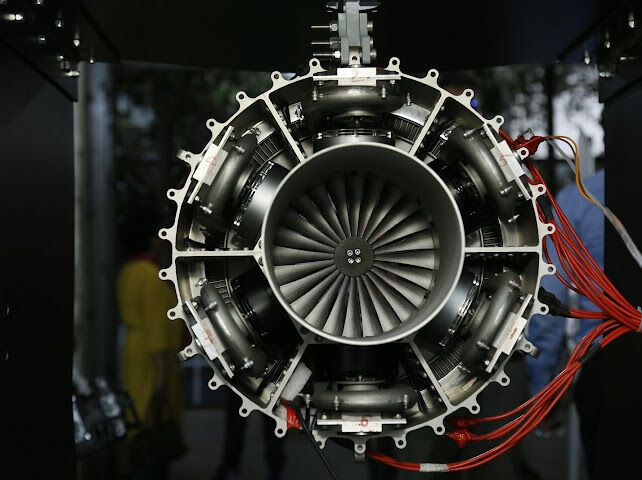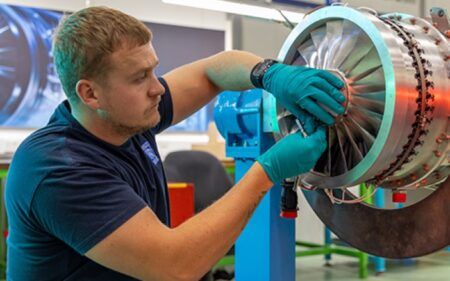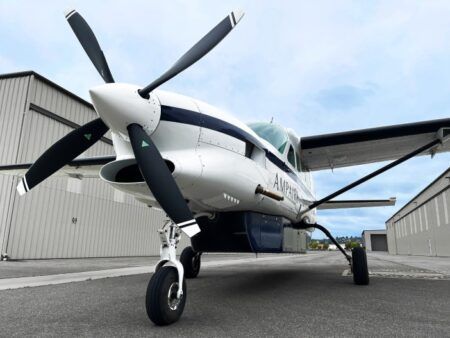SiriNor has successfully tested what it claims is the world’s first all-electric jet engine at its facility in Pune, India. The test on April 22 validated the engine at Technology Readiness Level 6 under NASA’s framework.
The Norwegian aerospace company with an Indian subsidiary reported that its engine prototype exceeded the design intent of 40,000 RPM and 10 kgf thrust as measured by a load cell during the ground test. The company sees this as a critical step toward full commercialization.
“This ground test is not just a technical milestone. It’s a moment of validation for our amazing team and our common vision,” said Ivar Aune, chairman and CEO of SiriNor.
The company is developing a tip-driven propulsion system using distributed edge-mounted motors rather than a hub-mounted engine. Built for thrusts ranging from 1kN to 90+ kN, the engine design aims to support ranges exceeding 4,000 km.
SiriNor is targeting UAV engine commercialization by mid-2026, followed by certification for larger platforms including ground-effect vehicles and aircraft.
The company has raised early-stage funding, reaching a US$20 million valuation following the successful test. SiriNor plans to raise another USD$5 million before the summer this year.
According to SiriNor, its engine architecture removes the need for combustion chambers and high-cost alloys, potentially cutting manufacturing costs by 30% and maintenance costs by up to 40% for aircraft engines. The power source-agnostic engine can work with both battery and hydrogen electric energy sources.
“Our engine architecture is designed for flexibility. It’s compatible with both battery and hydrogen electric energy sources, supports thrust ranges for everything from drones to commercial jets, and its simplicity brings unprecedented efficiency to aerospace manufacturing,” said Abhijeet Inamdar, co-founder of SiriNor and CEO of SiriNor India.
SiriNor said it has seven letters of intent with global drone, ground-effect vehicle, and small aircraft developers and operators. The company employs engineers from both Norway and India, with team members having previous experience at companies including Airbus, Tata Vistara, GE, Pratt & Whitney, and Equinor.





